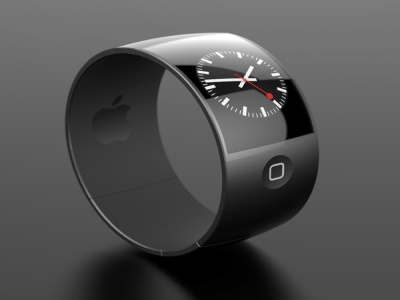Rumor: Apple Facing Issues Developing iWatch
Don't expect to see Apple's iWatch until the back half of 2014.
Unnamed sources in the upstream supply chain in Taiwan claim that Apple's upcoming iWatch is suffering from low yield rate problems, meaning that many components are failing tests during manufacturing. Because of this, component suppliers are only able to provide 30 percent to 40 percent of their original order volumes.
Currently, Apple's wearable tech is slated to arrive in the second half of 2014, probably this time next year, if the company doesn't suffer any additional setbacks. However, Apple hasn't officially announced the device, so a specific release window is mere speculation at this point. Prices are also expected to be around $149 to $229, although that could change before the supposed fall 2014 launch.
The rumored Apple device is reportedly being built using powder metallurgy technology, and then processed by computer numerical control (CNC) equipment. Inventec and Quanta Computer are supposedly manufacturing the device, with the former handling 60 percent of the orders and the latter 40 percent.
Sources claim that Apple is shooting for a design that's not only thin and light, but elegant in appearance. However, this design is supposedly posing as a great challenge for not only chassis suppliers, but the component makers and process service providers.
The smartwatch sector is beginning to heat up, as Sony recently made available its second-generation SmartWatch (2), and Samsung just revealed its own Galaxy Gear device. Even Qualcomm is jumping on the smartwatch bandwagon with the upcoming release of its Toq wearable device.
Sources claim that many Taiwan device makers are trying to land related orders, including FIH Mobile, Compal Communications and Arima. These companies have established teams focused on reeling in smartphone orders from both established players and new entrants.
This most recent report indicates that the iWatch "delay" is more likely due to manufacturing problems than Apple biding its time as it watches competitors cough up solutions. Like the iPhone and iPad, Apple is undoubtedly ignoring everything its competitors are doing and developing innovative tech that will set the smartwatch standard for years to come.
Get Tom's Hardware's best news and in-depth reviews, straight to your inbox.
Unnamed sources cried a similar low yield rate claim back in July, stating that the initial shipments of the just-revealed iPhone 5S will be in short supply due to low yield rates when producing the fingerprint scanning tech. Volume production of the sensor was expected to begin at the end of June or the beginning of July, but issues related to the yield rates delayed commercial production of the recognition chips and LCD driver ICs.

Kevin Parrish has over a decade of experience as a writer, editor, and product tester. His work focused on computer hardware, networking equipment, smartphones, tablets, gaming consoles, and other internet-connected devices. His work has appeared in Tom's Hardware, Tom's Guide, Maximum PC, Digital Trends, Android Authority, How-To Geek, Lifewire, and others.
-
TeraMedia ReplyLike the iPhone and iPad, Apple is undoubtedly ignoring everything its competitors are doing and developing innovative tech that will set the smartwatch standard for years to come.
-
MfastPrincess Hm, I just can't jump on the apple bandwagon. I like being able to fix stuff myself :)Reply -
edogawa Like the iPhone and iPad, Apple is undoubtedly copying everything its competitors are doing and developing their own overpriced tech that will set the smart-watch standard for years to come down the drain with patent cases.Reply
Fixed your writing. Seriously though, the bias is pathetic. A journalist should be give an unbiased statement in their articles, this isn't mac-world. -
funguseater "Like the iPhone and iPad, Apple is undoubtedly ignoring everything its competitors are doing and developing innovative tech that will set the smartwatch standard for years to come."Reply
LOL and in other news today Kevin Parrish has been hired by Apple Marketing team. -
robochump Anything positive about Apple is obviously biased reporting....lol. Keep buying your foreign tech and I will stick to US tech.Reply -
robochump Fixed this for you:Reply
Like the Galaxy and everything else, Scamsung is undoubtedly copying everything its competitors are doing and developing their own overpriced tech that will never set the smart-watch standard for years to come.
Did we forget that the Galaxy Gear watch is $299 already? lol -
iamadev I'm glad that everyone else seems to have picked up on the one noteworthy part of this article. How anyone thought that comment was anything other than fanboi rhetoric is incredible.Reply -
edogawa Reply11533113 said:Fixed this for you:
Like the Galaxy and everything else, Scamsung is undoubtedly copying everything its competitors are doing and developing their own overpriced tech that will never set the smart-watch standard for years to come.
Did we forget that the Galaxy Gear watch is $299 already? lol
300 does seem like a lot(although my analogue watches are more than that), but this is a new tech trend growing, I would expect them to be a lot cheaper once they sell a lot. Gear watch does look really cool if used with a note 3 though.
